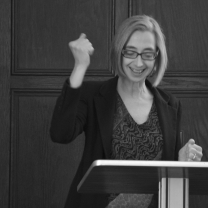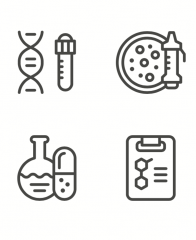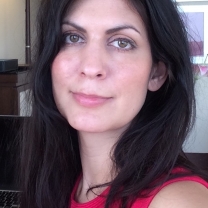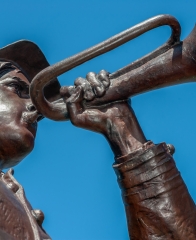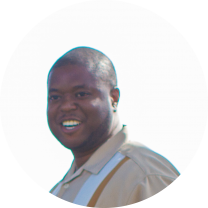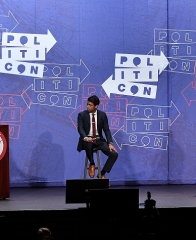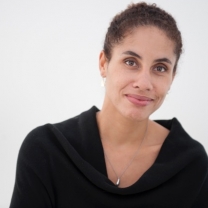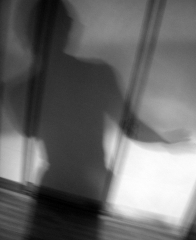 / Public Forgiveness; Unforgiving Public
Subscribe
/ Public Forgiveness; Unforgiving Public
Subscribe

I brace myself whenever I see a news story about someone publicly expressing her or his forgiveness of a wrong suffered. Inevitably, responses online will follow a relentless pattern of critique: the wrongdoer should not be forgiven, the speed of the offer of forgiveness is too quick or too slow, or the forgiver is misunderstanding the concept of forgiveness. People will offer comments on news stories about such wrongs, stating that forgiveness was no less than the moral minimum and that we all ought to forgive because it’s commanded by a deity. (I know, I know: Don’t read the comments.) There will be well-intentioned media pieces and readers that marvel at the saintliness or impossibility of the forgivers’ choices—that public forgiveness is an unfathomable moral maximum.
Yet other public calls for forgiveness sometimes do not get much serious uptake, especially when public forgiveness involves groups or nations. To some thinkers, the idea of “public forgiveness” by groups or communities borders on an oxymoron. Forgiveness, some have argued, is a quintessentially emotional and internal experience for an individual, something you do in your heart, and cannot be a public performance in the way that an apology can. It is private. As philosopher John Austin said in How to Do Things With Words in 1962, apologies are forms of “speech acts,” in which to say something is to do it. Public apologies are therefore coherent. In contrast, forgiveness is felt, and so we can put it safely in the private column.
This public/private distinction, however, is disrupted by interdisciplinary studies and material realities. Historians and religious studies scholars point out that in different religious traditions, forgiveness is a social endeavor supported by members of the religious community. Psychologists and political theorists indicate that processes of transitional justice and restorative justice after mass conflicts centrally involve discussion as to what it means for groups or representatives to advocate forgiveness as, and for, nations. And the material realities complicating old distinctions have come to include, for better and for worse, the Internet age. Today it is more accommodating of our actual experience to see public forgiveness as meaning at least two different things: First, forgiveness by a public entity or a group identifying with public interests, and second, forgiveness in public, by individuals with the sort of change of heart we associate with the private variety, yet conveyed in a public setting, such as the forgiveness of survivors of Dylan Roof’s terrorist attack on a church in Charleston, South Carolina.
Prior to the rise of social media, it was the former that tended to occupy theorists; as philosopher Alice MacLachlan points out, early theorists who took up the question of political forgiveness had “in mind large-scale cases of wrongdoing between social and political groups on a national, or even international, scale.” I find that the conversation began to shift ten years ago with the rise of social media. In the past five years, as evidence mounted that increasingly, people were getting their news from social media, the more personal iterations of forgiveness by an individual in public have become the more predominant form of public forgiveness discussed online and in mainstream journalism.
It’s remarkable that the concerted media attention to individuals’ forgiving in public has received a greater share of the attention to public forgiveness, at the same time that the cyberspace era has been more often one of outrage than forgiveness. Jon Ronson observes that the 2010s ushered in “a great renaissance of public shaming,” and after the widespread outrage, jollity, or both diminishes and the object of the furor retreats from the public stage, news stories about forgiving on the part of either the outraged or the shamed are scarce. There is not yet any sign of a coming renaissance of public forgiving. Public apology, public anger, and public wrongs and punishments are much more likely to go viral; one can share stories of those with a burning sense of solidarity with avenging angels and feel one’s own righteousness.
Forgiveness is not well suited to the same. As a recognition of wrongdoing, forgiveness is an acknowledgement of pain and suffering. In all its forms, as a commitment to recover from that wrong, or as a re-acceptance of the offender as more than the sum of his acts, or as a reflection of one’s belief in a higher power or a greater community than oneself, forgiveness is an indicator that the pain is being taken, that the scar cannot be removed, that one has, in one way or another, decided to accept the unacceptable. That’s not exactly click-bait. When individuals choose to endorse forgiveness in public spaces, they are more likely to inspire either awe or wariness of being asked to do the same than they are to permit us to burn with solidarity. Individual pain is personal.
I look to find ways to create opportunities to better engage with the idea of public forgiveness. Responses to both forms of public forgiveness, the forgiveness enacted by public groups and the forgiveness of individuals in public, often circle around whether or not participants got the definition of forgiveness right. We would do better to discuss what public forgiveness might accomplish, modeling different norms, effecting social changes, or attending to the well-being of victims. And as Luke Brunning and Per-Erik Milam say so eloquently, the mainstream tendency to celebrate forgiveness should be treated with especial caution when the forgivers are also victims of oppression: “If we praise forgiveness as a response to wrongdoing, as many do, we should also actively combat the influences that undermine the ability of some to forgive freely. Forgiveness in the aftermath of hate crime will only resonate if society is receptive.”
Kathryn J. Norlock is the Kenneth Mark Drain Chair in Ethics at Trent University and the editor of The Moral Psychology of Forgiveness.
Photo Credit: TypoArt BS, "Forgive," via Shutterstock, 25 May 2017.
